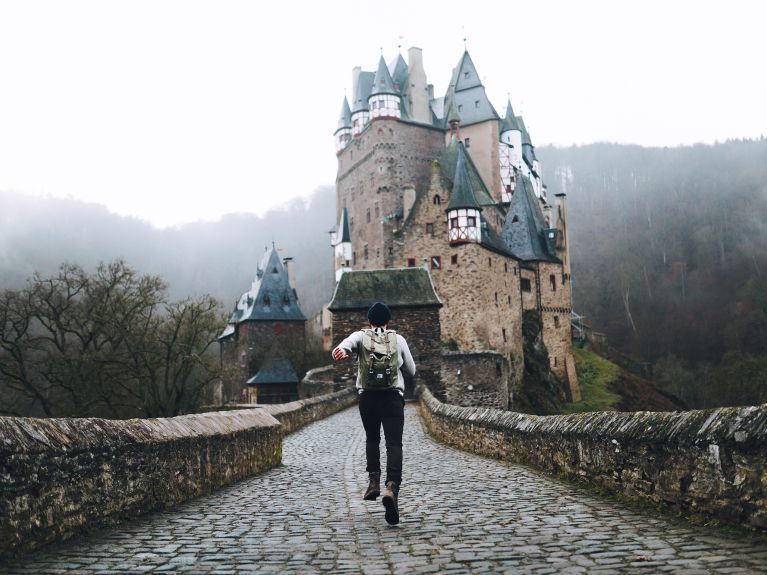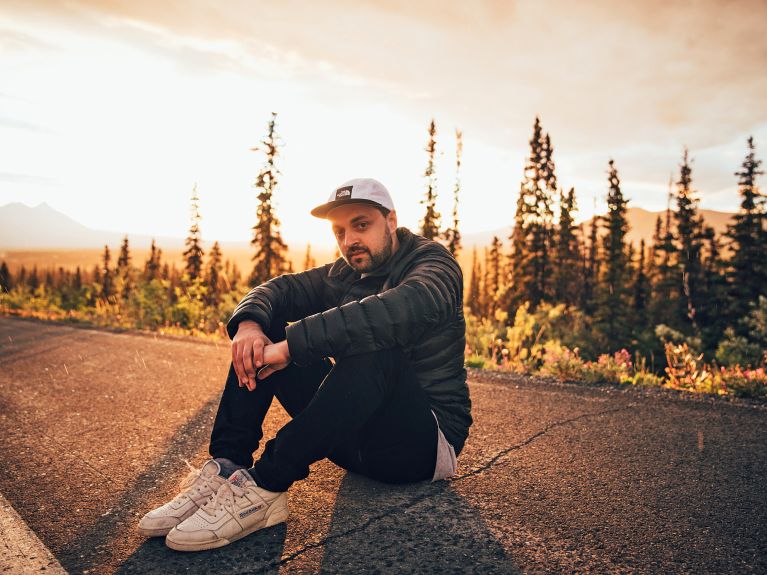Hikers with cameras
See how the “German Roamers” are reinventing landscape photography.

In 2014 Johannes Höhn founded the German Roamers, a collective for a new type of landscape photography. There are now 14 photographers in the group who present their work on a joint Instagram account boasting 214,000 subscribers. If you add to this the social media channels of the individual photographers, the number comes to 4.5 million people.

Johannes, how did you get this idea?
I discovered Hannes Becker and his landscape photographs on Instagram. I liked his style. In November 2014 I got in touch with him. Then we met as on a blind date and went to Eltz Castle. It was there that the first photographs were taken – and the idea of founding the German Roamers developed.
What distinguishes their style?
You can see the difference from classical landscape photography at first sight: it’s mainly in the image processing. The motifs are rather matt and dark. We also try to discover new corners. “Roamers’ comes from “to roam”, ramble, wander about. The term has already been adopted on the social media. There, people say, “Com’on, we’re going roaming”.
Photographers are looked upon as lone wolfs. How did the collective come about?
As a teenage skater I already realized that you can achieve more through community work. So after our first meeting we looked around for people with a similar style. Now we’re 14 guys who got to know each other through photography and understand each other well. We do a lot of joint tours; it’s developed into a regular movement.
You don’t exploit the pictures commercially. What do live from?
Right, we don’t sell our pictures and the account is and remains largely free of advertising. But we get enquiries for jobs and projects. More than half of the Roamers now work professionally as photographers.
How did you come to photography?
I started as a 13-year-old skater with videos. Later I studied sport science in Cologne and photographed my own sneakers on the side. That’s how I came to outdoor photography. So it was all self-taught.
Interview: Martin Orth
